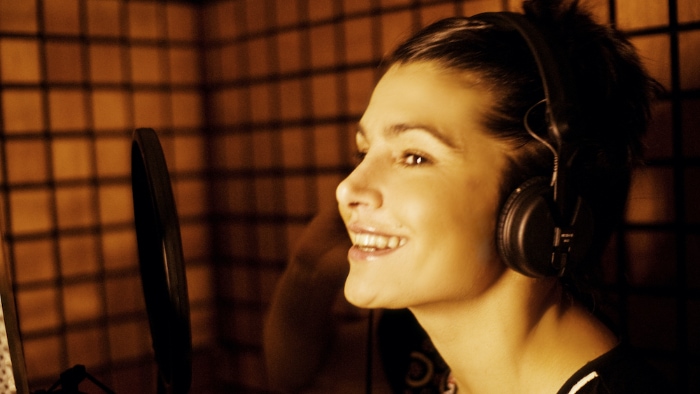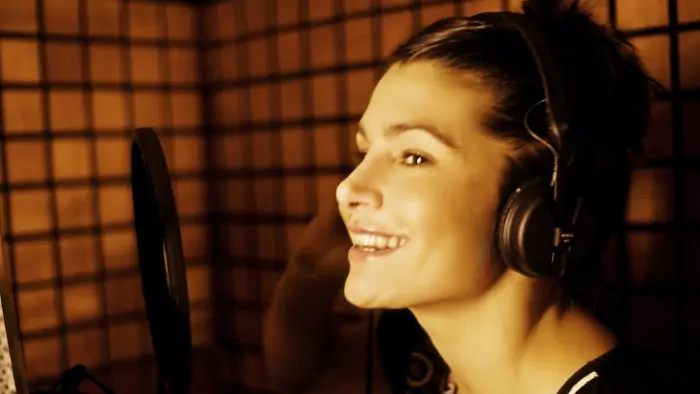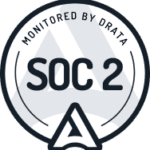
Joanna Rubio works as a European Spanish/Neutral Spanish and English International online voiceover artist from her recording studio in Spain, working with advertising agencies, production companies and direct clients worldwide for clients like Nike, Apple, Huawei, Netflix, Momondo, Cisco, Procter & Gamble, McDonald’s, Repsol, Emirates Airlines, Coca Cola, TeamViewer, Cigna USA, Iberia, Turismo de México, Avast, Change.org, Groupon, Gianni Versace, Bupa UK, Lancôme, the United Nations, Giorgio Armani and many more. She’s full of energy, creativity and enthusiasm and it was a pleasure to talk to her.
Peter: Thanks so much for agreeing to do this interview! I guess the first place I like to start with these is that everyone reading this is either a tech geek of some kind or has a studio of some kind. So what is your recording setup?
Jo: I have a three story house and the top floor is my recording studio, and since the COVID situation with the pandemic, I’ve been working more than ever remotely. In one year, remote working has developed to what would have needed 10 years to advance so fast. I am from Madrid, but now I live by the beach because most of my clients are worldwide now, so I don’t need to be specifically in the big city, and that has changed my life. So for me, remote work and Source-Connect and the possibility to connect to other studios have really changed my life and and the choice of where I want to live and my whole whole way of working.
Peter: What is a typical work day like for you?
Jo: As you know, like voiceovers, we don’t have a scheduled set of recording jobs to do. So my clients contact me sometimes the day before, or even with just a few hours notice now. I think the secret of the success of people who work remotely is be available 24/7, if you have your own studio. So if I have work to do, I just have to go inside my soundproof booth, which is one of my best investments in the world, because it’s like carrying a professional studio with you anywhere. So I am my own sound engineer and I direct myself because in many works, you have to self-direct yourself now as well. It’s like being three people in one, but then more and more, all jobs are starting to need one same person to do several things. And the better you are at self-directing yourself and working on your own, the better for the results because time is of the essence more and more, so things have to be done for one hour from now! Clients can’t depend on you needing a director, a sound engineer, a studio that’s available. So we are multitasking more and more, and everything has to be done more faster now.
Peter: I can spy a keyboard and a bass guitar behind you. Do you music as well?
Jo: Yeah. I started doing TV jingles before I transitioned to voiceover. So I have all kinds of instruments. I like to experiment with every instrument. I’m not like a virtuoso on any one of them but I like to compose songs, so I have my music as a hobby now. But originally I started with music and I think lots of voiceovers started with singing. That’s why I think the transition from being a singer to being a voiceover is like a natural transition though, because it’s the same tool.
Peter: Do you release your music online?
Jo: No. Do you remember MySpace?
Peter: Of course. I miss Tom.
Jo: MySpace was a big thing and in those days I was really into music and I had the opportunity to collaborate with artists from all over the world. And that was an amazing experience because we exchanged tracks. Now I exchanged for example a voice track with for someone’s bass line for my songs. So we did this exchange and we created lots of music. At that time it was completely new and it was magic. So through MySpace I collaborated with artists in every genre, because I could have collaborated with rappers from Chicago, I’ve collaborated with artists from Italy, all kinds of genres, because I enjoy music as a whole. I’m not limiting myself to one genre. I like to experiment with everyone and everything. And then when I transitioned to voiceover, I thought there had to be a way to work in the same way, exchanging audio tracks of things I could record in my studio. And then when I found Source Connect, that made it possible.
Peter: How did that transition happen for you? How did you get into voiceover?
Jo: Once I had to record a jingle for a TV commercial, and for some reason there was a closing line in English. I studied in an American school, so pronounce more or less well in English. So the closing line had to be read in English and they gave me the chance to say this closing line as a voiceover. And it worked great. So I started doing like little, little, little little jobs and as a voiceover and I ended up having a little reel of things that I had been recording. I love acting also, so I started to study dubbing in Spain. Many the movies are dubbed in Spain, unlike in Portugal for example where they don’t dub the, the movies that come from from other countries. But in Spain, we are very used to seeing everything dubbed. So I studied dubbing and voice acting and before I knew it I was already an established voiceover artist and I had my niche. Voice is very subjective: for some reason your voice goes well with some things and not for other brands. And I was lucky enough that my voice …perfume brands and fashion clients, they wanted my voice for them.
Peter: So who are some of the brands you’ve worked for?
Jo: I’ve worked for many fashion firms, like Giorgio Armani and Lancôme. I’ve worked for Apple, Google, Amazon. And now for car brands like Mercedes and Audi, everything is multimedia now and I think that most of the voiceover artists who are working stably have had a chance to more or less work with all kinds of brands because they are constantly coming up with new things that need to be voiced in every language, because that’s something else the internet has done: every brand has to have their promos or their commercials in every language; their training videos, their corporate corporate videos. They weren’t that common before now, but now corporate videos are one of the best ways to promote a company.
Peter: Cool! So what do you use in terms of microphones, recording, interface, all those techie details that we geeks love?
Jo: I work in Mac and I have a Neumann U87, which since I started was always my dream microphone. I always dreamed to one day be able to buy a U87! The dream came true! For a sound card I use Apogee and I work with ProTools and Logic. Those are the standards, the professional, broadcast quality equipment that you need.
Peter: Yeah. It’s interesting. I’ve noticed that doing these interviews, most people have an Apogee interface and a U87, whereas when I talk to guitar players, a lot of them are like, “An SM57 would be good but I use whatever I can get.”
Jo: Yeah. One of the secret ingredients that you need to be able to work online is to have a very good sound, and for voiceovers, that’s the main thing. And if you’re connecting with a studio in America or in the UK recording a TV commercial, if you don’t have a good sound, they’re not going to be working with you because you may think they don’t notice, but in a good studio those little nuances of, if you can hear if the neighbour watching his TV!
Peter: Well that’s almost our time up so there’s anything else you want to talk about, now’s your chance!
Jo: No, I I’m just very happy that even though COVID has been terrible, it has proven that working remotely is something that can be done and that the result is as good because in many studios, for example, in my country and other countries, I have in the past had to travel to the UK to record a commercial because the studios were not willing to work remotely. And now with the pandemic, they have had to try working with us remotely. And they have realized that the result is the same. And even in Spain, in Madrid, many studios were not willing to connect with a studio that was four hours away from the main city. So yeah, I’m, I’m happy that it has been that the remote work is the present. It’s not the future anymore. It’s the present. And it has been made the present because of the COVID situation, which is terrible. But it’s like in any other industry, people like working in offices, friends of mine, their companies were not willing to let them work remotely. And now they are considering having them have some days throughout the week where they can work from home.
Peter: Yeah. I mean, for creative people, musicians, voiceover, all that kind of stuff, being able to do this really gives us some of the power back that the industry has kind of taken in terms of like, you know, with music, you look at streaming services that are great tools, but they also take some of the power away from the musician, unless you can make your own stuff at home and put it on there without a record label getting in between and taking, taking the money, you know?
Jo: Yeah. And I think now more than ever, all the platforms like Source-Connect that enable the remote working, people are going to value them more now that people are leaving the big city, because we have realized that remote work is a possibility and that you can decide where you want to live. And in some cases, this whole COVID situation has made you revise your life and what you want to do with your life.
Peter: Well, thank you so much for your time. It’s been really fun! Stay in touch!
Jo: It’s been fun! Thank you very much!Thank you, Peter. Bye-bye, have a great day.
More info about Joanna:

